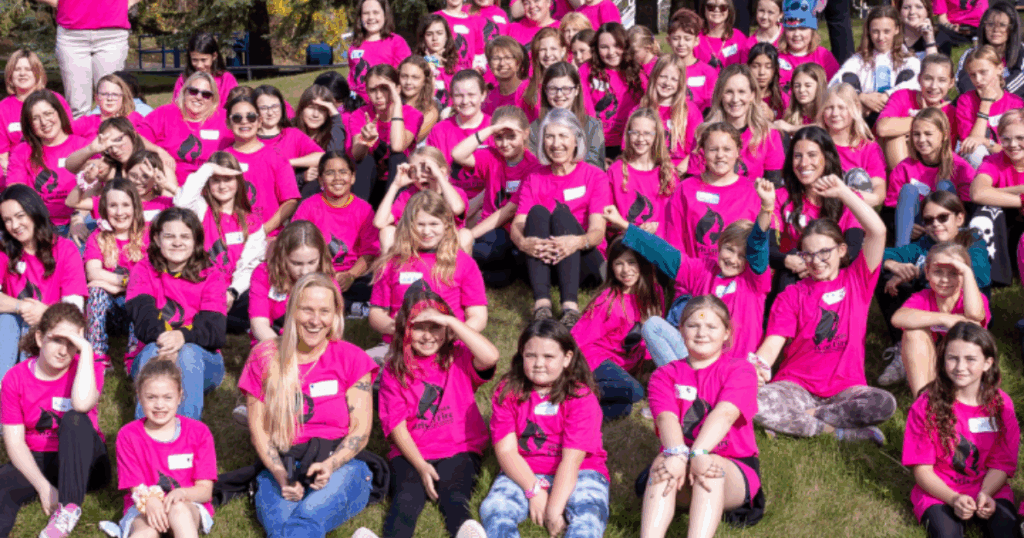What Is a Growth Mindset?
A growth mindset is the belief that abilities can be developed through effort, learning, and perseverance. When kids understand that mistakes are part of the learning process, they become more confident in facing challenges. For young girls especially, cultivating this mindset early helps them build resilience, courage, and self-belief that lasts a lifetime.
At Girls on Fire, we teach girls ages 8–13 to see every obstacle as an opportunity to grow stronger—mentally, emotionally, and physically. Through martial arts, self-defense, and mindset workshops, our programs show girls that their potential isn’t fixed—it’s ignited.
Why Growth Mindset Matters for Girls
1. Building Confidence from the Inside Out
Confidence isn’t something you’re born with—it’s something you build through action. When girls learn that effort leads to improvement, they stop fearing failure and start taking healthy risks. Whether it’s breaking a board for the first time or speaking up in class, each success becomes proof of what’s possible.
2. Turning Setbacks into Strength
A fixed mindset tells us, “I can’t do this.” A growth mindset says, “I can’t do this yet.” That single word changes everything. Girls who adopt this mindset learn to bounce back from challenges instead of backing down. At Girls on Fire, we celebrate “failure moments” as stepping stones to success—because real strength comes from trying again.
3. Empowering Girls to Lead
When girls believe they can improve, they start to lead by example. They become encouragers, problem-solvers, and teammates who lift others up. Teaching a growth mindset doesn’t just help one girl—it creates a ripple effect of empowerment that reaches her school, her home, and her community.

How Parents and Mentors Can Encourage a Growth Mindset
Parents play a vital role in shaping how kids view challenges. Here are five powerful ways to help your daughter develop a growth mindset at home:
- Praise Effort, Not Just Results
Instead of saying, “You’re so smart,” try “I’m proud of how hard you worked.” This shifts focus from natural ability to dedication. - Model Lifelong Learning
Let your child see you trying new things—even when it’s hard. Show her that adults make mistakes too, and that growth never stops. - Reframe Failure
Talk about times you didn’t succeed the first time and what you learned from it. Normalize the idea that challenges help us grow. - Encourage Curiosity
Ask open-ended questions like “What did you discover today?” or “How did you solve that problem?” Curiosity fuels confidence. - Celebrate Progress
Growth isn’t always dramatic. Recognize the small wins—like showing up, speaking up, or staying calm during tough moments.
The Girls on Fire Approach to Growth Mindset
Hands-On Learning
Our martial arts and self-defense sessions go beyond physical strength—they teach mental discipline. Every time a girl earns a new belt level or completes a board-breaking challenge, she experiences firsthand what it means to persevere and achieve through effort.
Mindset & Goal-Setting Workshops
Girls participate in creative activities that explore goal-setting, affirmations, and positive self-talk. They learn that mindset isn’t just a theory—it’s a muscle that grows stronger with practice.
Mentorship & Role Models
Each program is guided by local female mentors—leaders, entrepreneurs, and athletes who model resilience and courage. When girls see strong women leading with confidence and compassion, they learn to believe the same about themselves.
Common Questions About Growth Mindset
What age should kids start learning about growth mindset?
Ideally between ages 7 and 13, when they’re developing independence and emotional awareness.
How can martial arts help build a growth mindset?
Martial arts teach focus, respect, and discipline. Students quickly learn that progress comes through repetition, patience, and effort—core principles of growth mindset.
What’s the difference between self-esteem and a growth mindset?
Self-esteem is how we feel about ourselves, while a growth mindset shapes how we think about our potential. Together, they build confidence and resilience.
Can a growth mindset help with school performance?
Yes. Studies show that kids who view challenges positively are more likely to persist in difficult subjects like math or science.
What if my daughter gets discouraged easily?
Remind her that every expert was once a beginner. Encourage her to focus on effort and improvement, not perfection.
Activities to Spark Growth at Home
Parents can nurture confidence outside the classroom too. Try these simple, fun exercises:
- Challenge Jar: Write small challenges on slips of paper (e.g., “Try a new hobby” or “Say something kind to yourself”) and draw one each week.
- Growth Journal: Encourage your daughter to jot down one thing she learned each day and one thing she’ll try again tomorrow.
- Family Goal Board: Create a visual space for family members to post their goals and track progress together.
These activities keep the concept of growth mindset alive long after class ends.
The Bigger Picture: Confidence for Life
Teaching girls to embrace challenges isn’t just about today—it’s about shaping tomorrow’s leaders. When girls grow up believing they can learn, adapt, and overcome, they become women who lead with courage and compassion.
At Girls on Fire, we believe every girl deserves to know that she is strong, capable, and unstoppable. By combining mindset training, mentorship, and martial arts, we’re not just teaching skills—we’re igniting futures.
Because when a girl learns to rise after a fall, she carries that strength into every part of her life.
